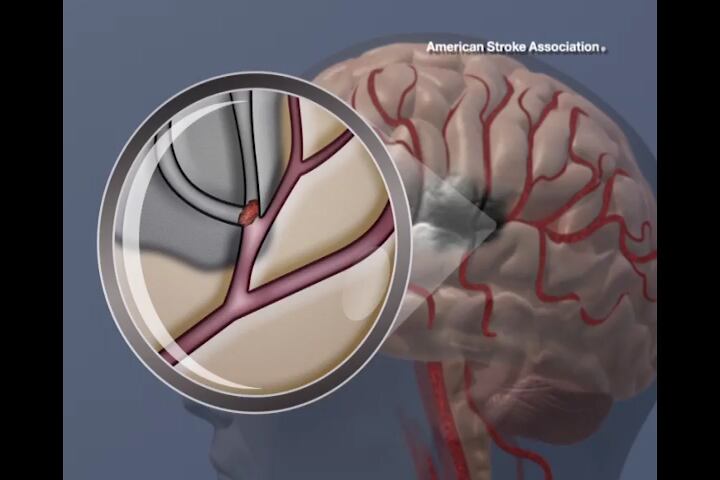People who drank heavily in mid-life had a 34% higher risk of stroke, compared to light drinkers, say researchers.
In addition, heavy drinking in this period was linked to having a stroke five years earlier in life.
Alcohol, hypertension, and diabetes: different risk of stroke
11,644 Swedish twins were followed for 43 years, and were all aged under 60 at the start of the study in 1967.
3,328 had experienced a stroke by the end of the follow-up in 2010.
Participants were categorized as non-drinkers or light (half to one drink a day), moderate (one to two), or heavy (two or more) drinkers. These were compared against the standard of very light drinkers (less than half a drink daily).
“Although alcohol-stroke association is well known, the age-varying effect of alcohol drinking at midlife on subsequent stroke risk across older adulthood has not been examined,” said Pavla Kadlecová, one of the authors of the study.
“Our principal finding is the risk of stroke attributable to alcohol consumption in midlife is not the same across older adulthood, but rather is moderated by age.
“Our results show that risk of stroke associated with heavy drinking in midlife is at least comparable with stroke risk associated with risk factors such as diabetes mellitus or hypertension; however, the age when those risk factors are relevant is different.”
While drinking alcohol was a greater risk factor for stroke during mid-life; hypertension and diabetes became more influential in older years.

“The stroke risk associated with heavy drinking predominated over risk associated with these diseases early after baseline, whereas the risk associated with hypertension and diabetes mellitus grew to being more relevant at ages >75 years (for hypertension) and >80 years (for diabetes mellitus) in our study.”
Heavy drinkers’ risk increased after age 50
“Risk of stroke for non-drinkers (versus very-light drinking) slowly increased over time and was apparent after the age of around 70 years,” said Kadlecová.
“Conversely, heavy drinking conferred particularly high risk of stroke (versus very-light drinking) soon after baseline median age of 50 years. The risk decreased from young to old age, essentially reaching null at 85 years of age (when 88% of strokes in this category had already occurred).
The study showed moderate female drinkers have a similar risk of stoke as heavy drinking males.
Consequently, the researchers say the findings are consistent with the American Heart Association’s recommended alcohol limit.
“Men should consume no more than two drinks a day, and non-pregnant women should consume no more than one drink a day.”

As well as increasing the risk of stroke, heavy drinking can raise blood pressure and cause heart failure or irregular heartbeat over time.
Genetic and early-life upbringing
Because identical twin pairs were among those followed, researchers were able to discount genetic factors (or early life upbringing) when they observed that participants who had a stroke drank more than a sibling that didn’t.
The researchers acknowledge that data for alcohol consumption before and after the 43 year study period was not available. They chose very-light drinkers as a reference standard over non-drinkers, because the latter category could include ex-drinkers who had stopped drinking alcohol for health problems or had pre-existing susceptibilities.
The researchers conclude alcohol consumption should be considered as a relevant age-dependent risk factor, and say it could have relevance to studies of younger patients with stroke.
Title: ‘Alcohol consumption at midlife and risk of stroke during 43 years of follow-up’
P. Kadlecová; R. Andel; R. Mikulík; E.P. Handing; N.L. Pedersen.
Source: Stroke. 2015. DOI: 10.1161/STROKEAHA.114.006724.
